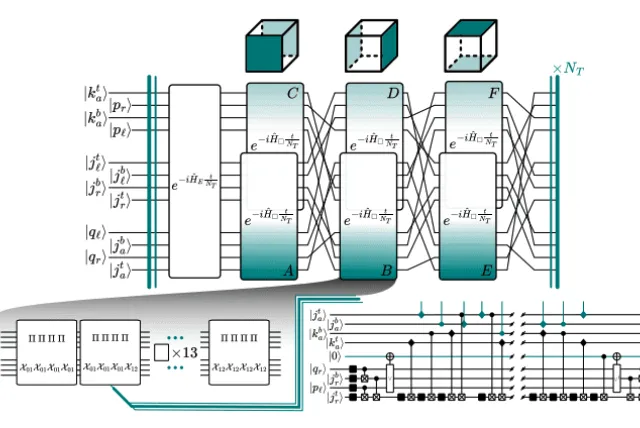In the Media
-
 UBC School of Biomedical Engineering
UBC School of Biomedical EngineeringNine SBME Research Projects Receive Major Funding from the Stem Cell Network
9 research projects led by investigators from the UBC School of Biomedical Engineering (SBME) have been awarded funding from the Stem Cell Network (SCN) to advance cutting-edge research in stem cell and regenerative medicine.
-
 Quantum Zeitgeist
Quantum ZeitgeistQuantum simulation maps lattice gauge theory to scalable digital circuits
UBC Engineering Assistant Professor Olivia Di Matteo and her team have found a more efficient way to run complex physics simulations on quantum computers by using qutrits—quantum systems with three states—instead of regular two-state qubits, helping pave the way for better quantum hardware in the future.
-
 Edmonton Journal
Edmonton JournalCentral Edmonton pegged as having some of the highest rates of premature deaths in men: report
Dr. John Oliffe, a professor at the University of British Columbia and co-author of the report, says social determinants of health are key drivers behind the higher rates of premature death among men in Canada, particularly in rural, remote, and Indigenous communities.
-
 CIM Magazine
CIM MagazineBeyond blaming red tape
UBC professor Davide Elmo argues that the mining industry needs a fundamental transformation in order to streamline the permitting process and meet today’s environmental and societal expectations.
-
 Capital Current
Capital CurrentUBC innovators unveil novel wood leather soccer ball at Expo 2025
UBC’s Bioproducts Institute unveil a first-of-its-kind wood leather ball at EXPO 2025 in Osaka Japan. This ball is a symbol of innovation, culture, design, science, and sport aligned with Vancouver hosting the FIFA 2026 World Cup.
-
 CBC Radio
CBC RadioPotholes are costing Canadians billions. But there are some solutions
UBC Civil Engineering Professor Nemy Banthia explains the freeze-thaw cycles that create potholes under traffic, costing municipalities millions that ultimately burden taxpayers and drivers.
-
 The Cool Down
The Cool DownResearchers make 'remarkable' discovery of effective alternative to electric car rebates: 'We recommend more places consider [it]'
UBC Civil Engineering Professor Alex Bigazzi conducts a new study that reveals how e-bike rebates are a cost-effective way to reduce pollution.
-
 STOREYS
STOREYS"An extraordinary power grab": BC pushes ahead with bills 15 & 13
Erick Villagomez, Part-Time Lecturer at UBC SCARP critiques the newest legislation on local planning and zoning bylaws in Britsh Columbia.
-
 Salon
SalonBe proud — science says it's healthy
UBC Nursing Professor Elizabeth Saewyc discusses how shame, discrimination and stigma contribute to adverse health outcomes, and how pride could be the antidote.
-
 Canada Foundation for Innovation
Canada Foundation for InnovationHow Canada is at the forefront of unpacking the potential of DNA data storage
Dr. William Hughes, the Director of the School of Engineering at UBCO conducts research into the possibility of "DNA origami" in order to solve big data's big storage problem.